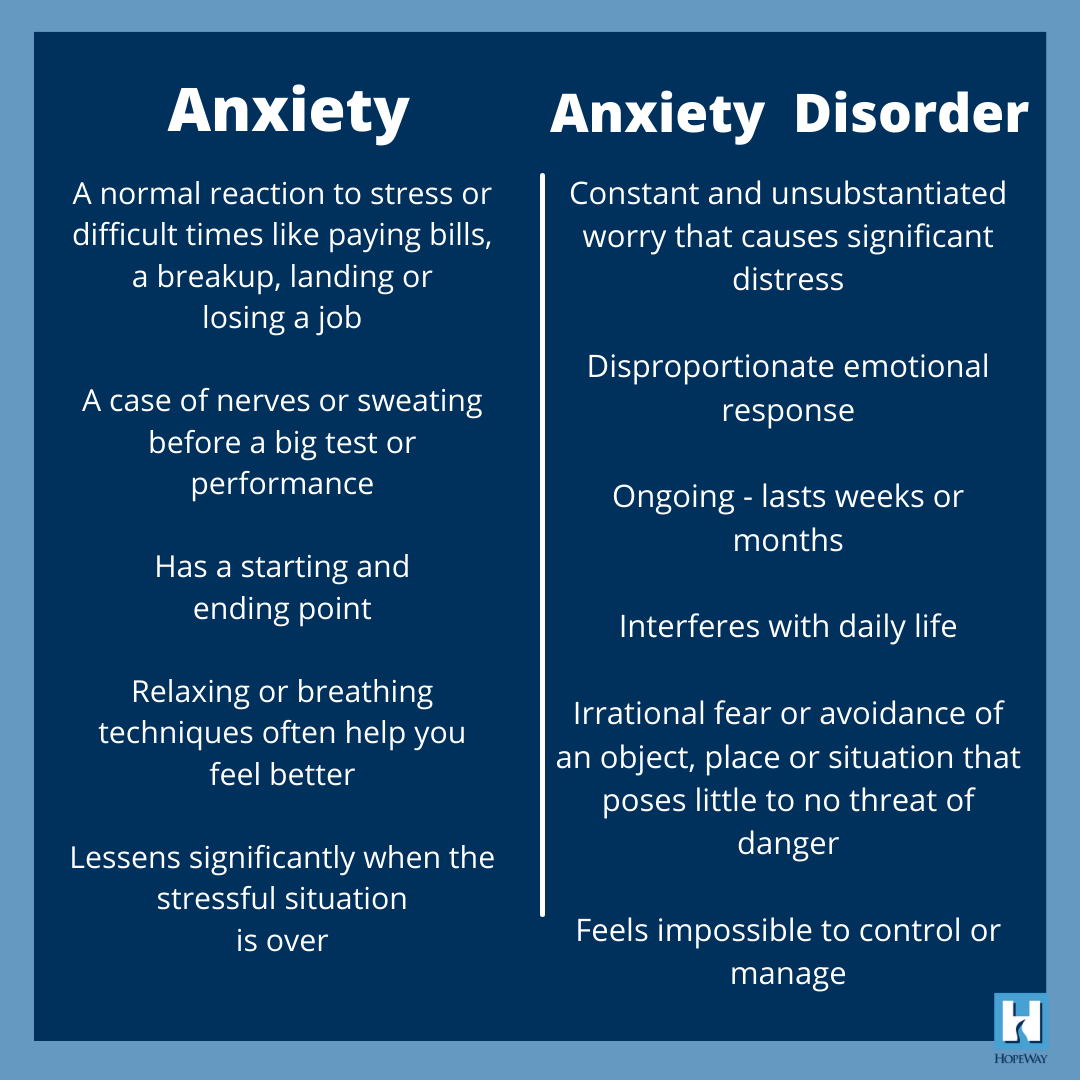- Depressive Disorders
- Bipolar and Related Disorders
- Anorexia Nervosa
- Bulimia Nervosa
- Avoidant Restrictive Food Intake Disorder (ARFID)
- Attention-Deficit/ Hyperactivity Disorder
- Binge Eating Disorder
- Other Specified Feeding and Eating Disorder (OSFED)
- Anxiety Disorders
- Trauma and Stressor-Related Disorders
- Schizophrenia Spectrum and Other Psychotic Disorders
- Co-Occurring Disorders
- Sleep-Wake Disorders
Anxiety Disorders
Everyone gets nervous or anxious from time to time. Things like speaking in front of a crowd, taking an exam, or experiencing financial difficulties often lead to feelings of strong anxiety. For some people, anxiety becomes so frequent or forceful, that it takes over their lives. According to the Anxiety and Depression Association of America, over 18% of adults have some type of anxiety disorder. Only about one-third of those suffering from an anxiety disorder receive treatment.
Forms of Anxiety
Anxiety, similar to other mental illnesses, negatively affects one's thoughts, moods, and behaviors. This in turn, affects the way someone perceives the people and experiences around them. Anxiety comes in many forms, from panic attacks, to phobias, to social anxiety.
What are the symptoms of anxiety disorder?
- Excessive fear
- Worry
- Tension
- Shallow breathing
- Increased heart rate
- Sweating
- Negative thoughts about oneself or the future
This level of anxiety typically has negative behavioral and emotional consequences.
Anxiety vs Anxiety Disorder

OCD and Anxiety
What is OCD?
Obsessive-compulsive disorders (OCD) are characterized by obsessive, intrusive thoughts that trigger compulsive behaviors. Engaging in these behaviors tends to alleviate the anxiety associated with obsessive thoughts. For instance, someone constantly worried about germs may repeatedly wash their hands, not touch public surfaces, or use wipes or gloves in excess. The removal of the anxious feelings reinforces the compulsive behavior.
Silent Images has just showcased a video series on mental health called "Compass & Light". This is the clip on anxiety:
Treatment for Anxiety Disorders at HopeWay
Anxiety disorders can impact every aspect of life, but with the right treatment, relief is possible. At HopeWay, we provide specialized care through our Residential, Partial Hospitalization (PHPs), Intensive Outpatient (IOPs), and Outpatient Programs for teens and adults. Our treatment combines evidence-based approaches like Cognitive Behavioral Therapy (CBT), Exposure and Response Prevention (ERP), and Acceptance and Commitment Therapy (ACT) to address the root causes of anxiety.
Clients benefit from a variety of holistic therapies, including mindfulness, yoga, and art therapy, which promote relaxation and emotional balance. HopeWay is dedicated to equipping clients with effective tools and coping strategies to manage anxiety and achieve lasting well-being.
Learn More About HopeWay's Mental Health Programs Here
If you are in crisis, please call the Suicide Prevention Lifeline
